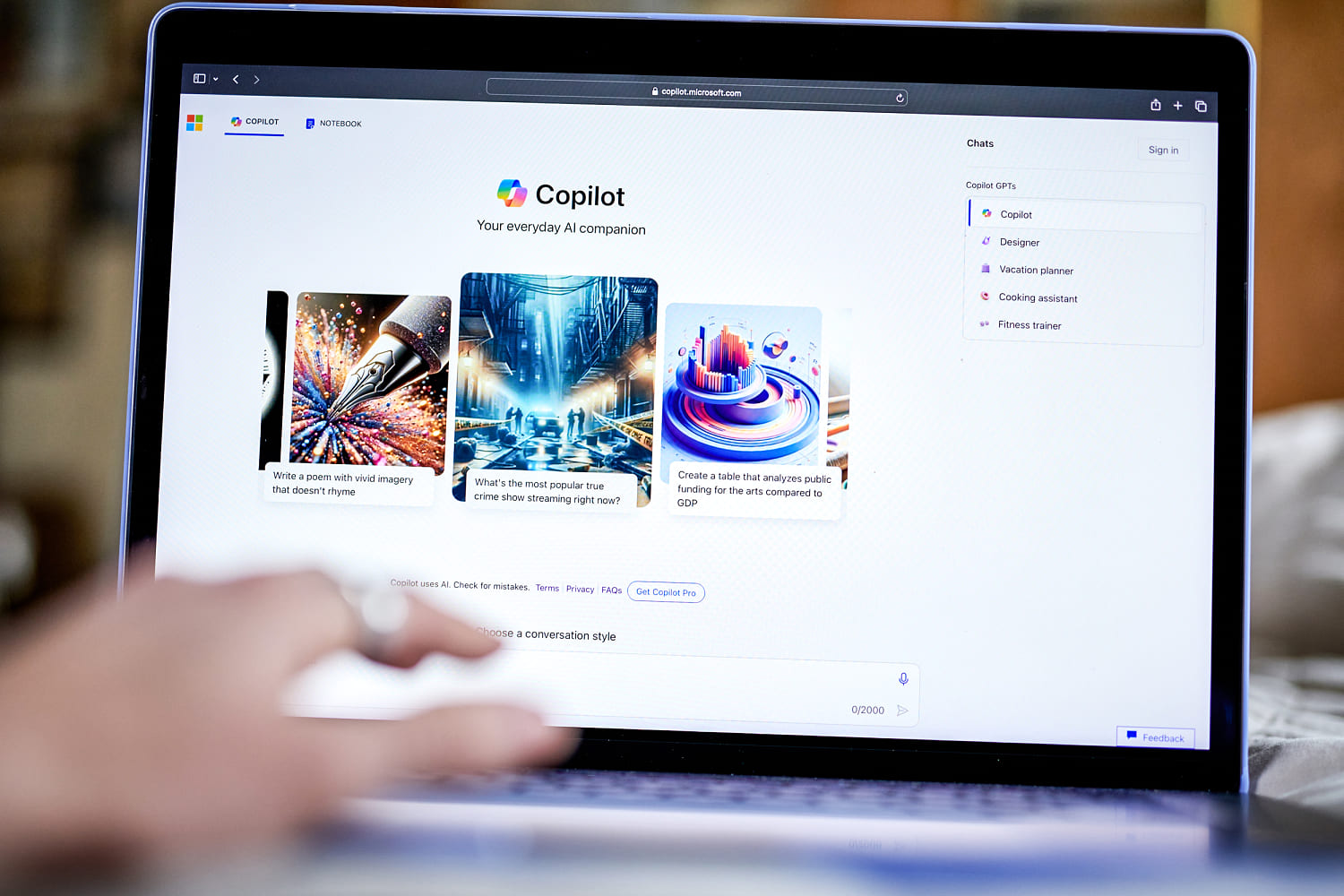
Microsoft said on Monday it would launch a new category of personal computer capable of handling more artificial-intelligence tasks without calling on cloud data centers.
At the event on its campus in Redmond, Washington, Chief Executive Satya Nadella introduced what he dubbed “Copilot+” PCs, saying that Microsoft as well as a range of partners such as Dell Technologies , Qualcomm, Intel and Advanced Micro Devices would help build them.
Microsoft showed a feature called “Recall,” which will help users find files and other data that they have seen on their PC, even if it was a tab opened in a Web browser. The company also demonstrated its Copilot voice assistant acting as a real-time virtual coach to a user playing the “Minecraft” video game.
Yusuf Mehdi, who heads up consumer marketing for Microsoft, said the company expects that 50 million AI PCs will be purchased over the next year. At the press event, he said faster AI assistants that run directly on a PC will be “the most compelling reason to upgrade your PC in a long time.”
To be called a “Copilot+” PC, the machines must meet mininum standards of processing power and performance, meaning that they will likely sell for higher prices. Microsoft’s new “Copilot+” computer marketing category that highlights AI features is reminiscent of the “Ultrabook” category of thin-form Windows laptops that Intel promoted with PC manufacturers in 2011 to compete against Apple’s MacBook Air.
Microsoft executives also said that GPT-4o, the latest technology from OpenAI, will “soon” be available as part of Microsoft Copilot.
Microsoft also introduced a new generation of its own Surface Pro tablet and Surface Laptop that feature Qualcomm chips based on Arm Holdings’ (O9Ty.F), opens new tab
, architecture. The company also introduced a technology called Prism that will help software written for Intel and AMD chips run on chips made with Arm technology.
After Intel’s processors dominated the personal computer market for decades, Qualcomm and other makers of lower-power Arm components have tried to compete in the Windows-PC market.
The Qualcomm Snapdragon X Elite chips include a so-called neural processing unit that is designed to accelerate AI-focused applications, such as Microsoft’s Copilot software.
Microsoft held the product event a day before the start of its annual developer conference.
Microsoft aims to extend its early advantage in the race to produce AI tools that consumers are willing to pay for. Its partnership with ChatGPT maker OpenAI allowed it to jump ahead of Alphabet, as other Big Tech companies race to dominate the emerging field.
Last week, OpenAI and Alphabet’s Google showcased dueling AI technologies that can respond via voice in real time and be interrupted, both hallmarks of realistic voice conversations that AI voice assistants have found challenging. Google also announced it was rolling out several generative AI features to its lucrative search engine.
The PC industry has been under increasing pressure from Apple since the company launched its custom chips based on designs from Arm and ditched Intel’s processors. The Apple-designed processors have given Mac computers superior battery life and speedier performance than rivals’ chips that use more energy.
Microsoft tapped Qualcomm to lead the effort to move the Windows operating system to Arm’s chip designs in 2016. Qualcomm has exclusivity on Microsoft Windows devices that expires this year. Other chip designers such as Nvidia have efforts under way to make their own Arm-based PC chips, Reuters has previously reported.

